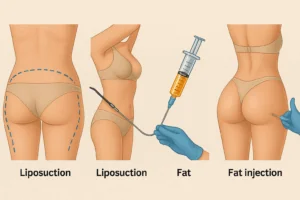In today's world, we live in a period of increasing health awareness. As a new threat to our health emerges every day, one of the most effective ways to combat these threats is regular health checks, namely annual check-ups. Annual check-ups are considered one of the cornerstones of our personal health management and are an indispensable part of maintaining a healthy life.
The Importance of Annual Check-Ups
The importance of annual check-ups is becoming more evident with the increasing awareness of early detection and preventive healthcare. Research shows that regular health checks play a major role in preventing or treating many serious health problems at an early stage. Thanks to these checks, diseases that do not yet show symptoms can be detected and intervened, preventing or controlling their progression.
The Place of Check-Ups in Health Management
Health management requires a proactive approach at the individual level. Annual check-ups are one of the most critical steps in this proactive approach. Regularly monitoring your health status reduces potential risks and enables you to make the most efficient use of healthcare services. Health checks can reveal not only existing health problems, but also health issues you may be at risk of. This way, you can protect your health through lifestyle changes and preventive measures.
Tests Performed During Check-Up and Their Importance
The tests performed during an annual check-up can vary from person to person. Factors such as age, gender, genetic factors, lifestyle and pre-existing health conditions determine which tests are performed. In general, standard procedures include blood counts, blood sugar levels, cholesterol tests, liver function tests, kidney function tests, urine analysis and blood pressure measurement. Gender-specific tests such as mammograms and smear tests for women and PSA (Prostate Specific Antigen) tests for men may also be recommended. These tests play a critical role in the early detection of various diseases.
Lifestyle and Check-Ups
Maintaining a healthy lifestyle maximizes the benefit of annual check-ups. Lifestyle factors such as regular exercise, healthy eating, adequate sleep and stress management can positively affect your check-up results. For example, a healthy diet and regular exercise can reduce risk factors such as high cholesterol and high blood pressure. It is therefore important to use the results from annual check-ups as a motivation for lifestyle changes.
Steps After Check-Up
After your annual check-up, it is important to review your test results in detail with your doctor. If potential health problems or risk factors are identified, your doctor will recommend an appropriate treatment plan or preventive strategies. This may include dietary changes, exercise programs, medication or other treatment methods. The important thing is to follow your doctor's recommendations and take the necessary steps to maintain and improve your health.
Annual check-ups are critical to maintaining a healthy life. Considering the benefits of early diagnosis and preventive health services, the importance of regular health checks becomes even clearer. Health is a valuable asset that cannot be neglected and it is the responsibility of every individual to protect this asset. Therefore, having regular health check-ups is one of the most important steps you can take for a healthy life. Remember, health is the most valuable investment and annual check-ups are one of the cornerstones of this investment.




















